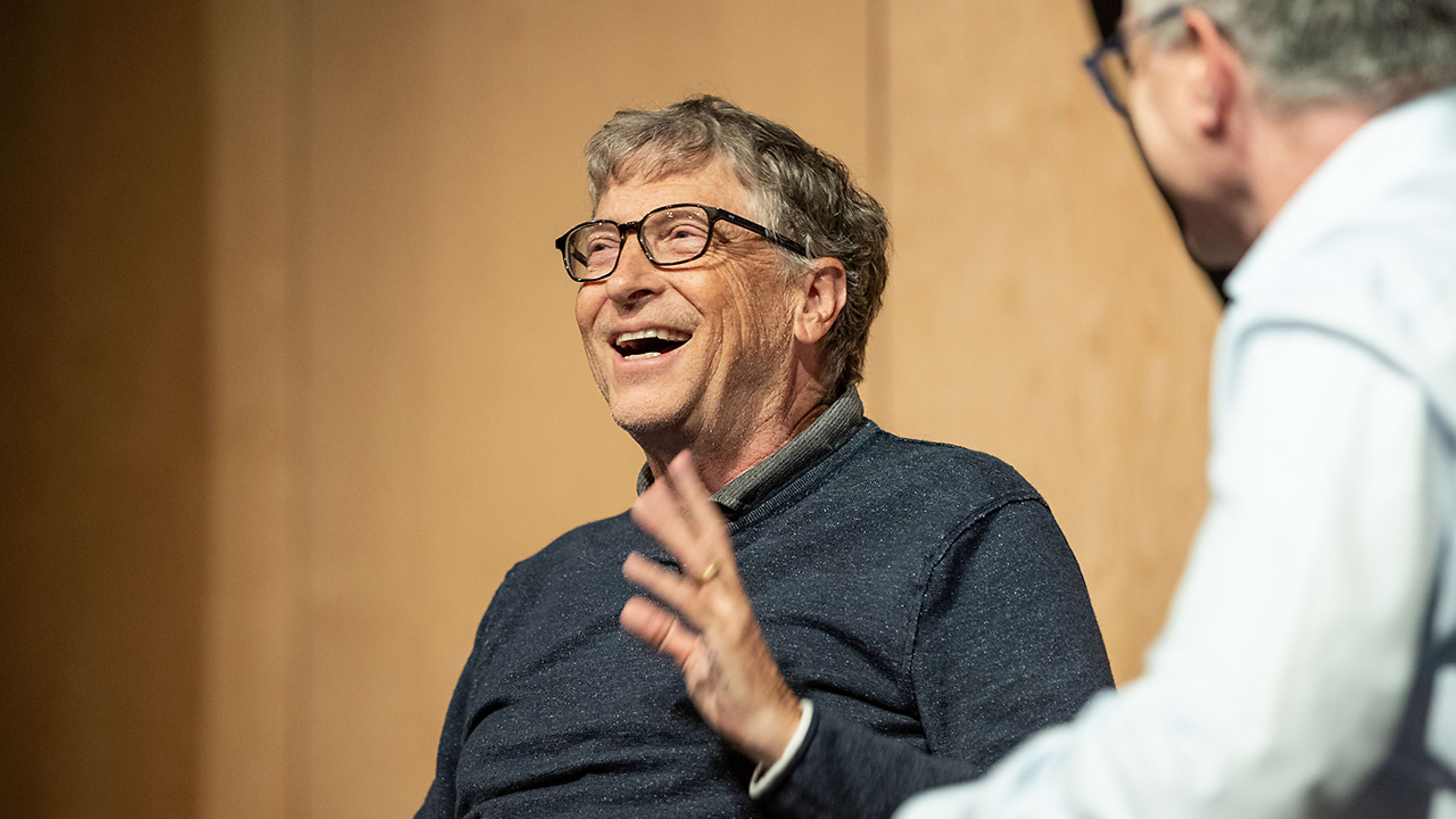Bill Gates made his career and his billions bringing personal computer software to bear in the workplace. Forty-four years after cofounding Microsoft, he says the biggest changes brought by business software are yet to come—courtesy of artificial intelligence. But he also expressed skepticism about the energy other tech companies are investing in applying AI to teaching vehicles to drive themselves.
“I’d say most of the opportunity to make computers improve work is in front of us rather than behind us,” Gates said at a Microsoft Research gathering at the company’s headquarters in Redmond, Wash., on Wednesday. These days, though he spends most of his time as cochair of the Bill and Melinda Gates Foundation, he retains a hand in shaping Microsoft’s future as a technology adviser to CEO Satya Nadella.
Gates characterizes even 2019’s business software as a relatively short step up from pre-digital times, still at a “It’s better than Wite-Out” level. Computers have been used mainly for “extremely structured tasks such as creating financial statements” where the machine leads the human through an “opaque” process, he said, and for jobs like writing emails where the human, not the machine, understands the significance and context of the content of the messages.
But in another five years, the AI in Microsoft’s products will have developed a deep understanding of the facts and language of users and their businesses. Armed with this information, a software assistant might know enough to handle tasks that only an experienced human assistant could once perform—like identifying the most important items in a stack of emails or phone messages; or gathering all the people, facilities, and information needed for a meeting.
Speaking in more general terms, Gates says he believes intelligent robots will soon begin taking mundane tasks off the plates of humans.
“So tasks like cleaning a room, or assembling something, if those can be done by robots, eventually those robots will not be super expensive,” he said.
Some of the underlying technologies such a scenario demands—like voice recognition, computer vision, and robotic arms and legs—are already advanced enough to support those tasks, he said. But others, like a robotic hand with the dexterity of a human hand, remain years away.
Notably, Gates wondered why big tech companies like Google and Uber chose something as complex and risky as autonomous driving as the first potentially epoch-shifting AI business.
“We’ve a little bit made it opaque by making car-driving the paradigmatic task,” he said. “It has so much demand for liability, for dealing with arbitrary situations that are unexpected, like somebody stops in front of you or the ball rolling out [into the street] . . .” (Microsoft provides platform tools to other companies developing self-driving vehicles, but autonomous driving hasn’t been a major focus of the company’s own research.)
Looking still further out into the future, Gates said he believes AI may eventually force us to redefine work itself and the role it plays in human life. He suggested we may evolve toward higher pursuits.
“A day will come when we won’t be so focused on just working and avoiding disease,” Gates said. “We’ll need some new spiritual cause that binds us, other than just the basics.”
Gates called education the “master switch” for preparing young people for the demands of a reshaped job market. “If you could supercharge education, then you buy many generations of workers who are well matched to what those demands will look like.”
Recognize your brand’s excellence by applying to this year’s Brands That Matter Awards before the early-rate deadline, May 3.
